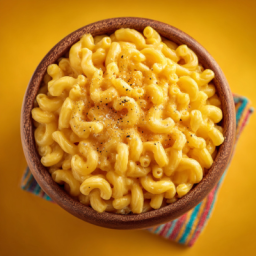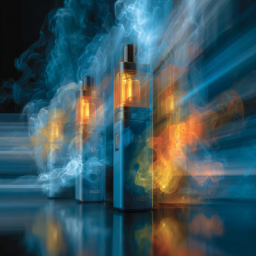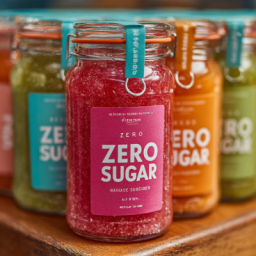
The following is a summary of relevant, notable Class Action Lawsuits that were filed in August 2024. Below is a summary of the plaintiff’s allegations. To request a copy of a particular complaint or for queries or further discussion, you’re welcome to reach out via email at [email protected].
1. Claudia Aguilar v Church & Dwight Co. Inc.
Claudia Aguilar has filed a class action lawsuit against Church & Dwight Co., Inc. in the United States District Court for the Central District of California, alleging that the company falsely advertised its L’il Critters Gummy Supplements as having “No Artificial Flavors,” despite containing DL-malic acid, a synthetic flavoring. The lawsuit, which includes claims under the Consumers Legal Remedies Act (CLRA), the Unfair Competition Law (UCL), and a breach of express warranty, argues that Church & Dwight’s labeling and marketing misled consumers into believing they were purchasing a naturally flavored product, thus causing economic harm to those who paid a premium for what they thought were health benefits of a natural product. Aguilar seeks monetary damages and injunctive relief to stop the company from continuing its false advertising practices, along with class certification, restitution, corrective advertising, and coverage of attorneys’ fees and litigation costs. The case emphasizes the importance of accurate product labeling and the consumer’s right to truthful information, asserting that common legal and factual questions make a class action the most efficient way to address these issues.
2. Charles Argento v The Stop & Shop Supermarket Company LLC.
Charles Argento has filed a class action lawsuit against The Stop & Shop Supermarket Company LLC, alleging deceptive marketing practices regarding its “farm fresh” eggs. The lawsuit claims Stop & Shop uses packaging that depicts idyllic farm settings, misleading consumers to believe that the eggs come from cage-free or humanely raised hens, whereas they are produced in industrial conditions with hens kept in battery cages. This misrepresentation, according to the complaint, violates the Egg Products Inspection Act (EPIA) and New York’s Agriculture and Markets Law (AGM), which prohibits deceptive advertising. Representing all New York residents who believed they were purchasing cage-free or humanely produced eggs, the lawsuit seeks damages for the premium prices paid under these pretenses. The filing highlights the importance of truthful labeling in consumer decision-making, especially concerning animal welfare and food safety, and aims to secure monetary damages, interest, costs, and other relevant remedies under New York’s General Business Law and related statutes.
3. Mayor And City Council Of Baltimore v Pepsico, Inc.; Frito-Lay, Inc.; Frito-Lay North America, Inc.; Coca-Cola, Inc.; W.R. Grace And Company; Mercury Plastics Md; Adell Plastics, Inc.; Polymershapes Baltimore
The Mayor and City Council of Baltimore have launched a legal battle against major corporations, including PepsiCo, Coca-Cola, and W.R. Grace and Company, accusing them of contributing significantly to plastic pollution in Baltimore. The complaint details how the surge in plastic production, particularly single-use plastics, has led to severe environmental degradation, including the spread of microplastics and nanoplastics that pose serious health risks. Baltimore argues that these plastics have infiltrated the public water supply and caused substantial economic harm, with the city spending approximately $32 million annually on plastic waste management.
Despite marketing themselves as environmentally responsible, the accused companies are alleged to have engaged in “greenwashing” by falsely promoting their practices as eco-friendly while continuing to produce vast amounts of harmful plastics. This discrepancy has purportedly intensified Baltimore’s pollution problems, escalating cleanup costs, and negatively impacting property values, business sales, and tourism. The city’s legal claims, grounded in violations of both Maryland and Baltimore City laws, include public nuisance, negligent design defect, and failure to warn. Baltimore seeks compensatory and punitive damages, along with injunctive and equitable relief, aiming to mitigate the plastic pollution crisis and hold these corporations accountable for their environmental practices.
4. Serena Caldeira v Emergy Inc. doing business as Meati Foods
Serena Caldeira has filed a class action lawsuit against Emergy Inc., doing business as Meati Foods, alleging fraudulent, deceptive, and misleading practices in their advertising of meat-substitute products as “Made From Mushroom Root” and “95% Mushroom Root Protein,” when they primarily consist of Neurospora Crassa, a red mold. The complaint, citing violations of the California Consumer Legal Remedies Act (CLRA), California False Advertising Law (FAL), California Unfair Competition Law (UCL), and common-law fraud, claims that Meati’s false advertising misled consumers into paying premium prices under false pretenses. Caldeira, who purchased the product based on these claims, argues that had the true ingredients been disclosed, she and others would not have bought the products. Seeking injunctive relief, restitution, and both compensatory and punitive damages, the lawsuit calls for the removal of misleading statements from packaging, clear labeling of the mold content, and adherence to truthful advertising practices. Jurisdiction is established under the Class Action Fairness Act (CAFA), with the controversy exceeding $5 million, and a CLRA Demand Letter was issued to Meati demanding corrective actions within 30 days to avoid further litigation, emphasizing the need for class certification given the widespread impact of Meati’s alleged misrepresentations.
5. Timothy Cantwell v Aldi Inc.
Timothy Cantwell has filed a class action lawsuit against Aldi Inc. in the Supreme Court of New York, County of Queens, accusing the company of deceptive marketing and false labeling of their “Naturally Flavored Cherry Fruit & Grain Soft Baked Bars.” The lawsuit alleges that Aldi’s product packaging misleadingly suggests the cherry flavor derives solely from natural sources, while actually containing DL-Malic Acid, a synthetic flavoring derived from petroleum, not disclosed as artificial on the packaging. This has allegedly led consumers, including Cantwell, to believe they were purchasing a purely natural product, causing them to pay a premium under false pretenses. The complaint highlights the discrepancy between the front label claims like “Made With Real Fruit Filling” and “No Artificial Flavors” and the presence of synthetic malic acid, which violates various federal, state, and local consumer protection laws. Seeking monetary damages, interest, legal costs, and class certification for New York consumers misled by these labels, the lawsuit calls for a jury trial to rectify these misleading practices by Aldi.
6. Kristin Cobbs v Vngr Beverage, LLC doing business as POPPI
Kristin Cobbs has initiated a class action lawsuit against VNGR Beverage LLC, doing business as Poppi, in the United States District Court for the Northern District of California, accusing the company of false advertising for its prebiotic sodas. The lawsuit contends that Poppi sodas are misleadingly promoted as beneficial for gut health, despite containing only 2 grams of prebiotic fiber per can—far less than the 7.5 grams needed daily for any significant health benefits. This discrepancy has allegedly deceived consumers, including Cobbs, who believed they were purchasing a health-enhancing product based on claims like “Be Gut Happy. Be Gut Healthy.” Cobbs argues that achieving the health benefits advertised would require consuming multiple cans daily, leading to excessive sugar intake and potential health risks. The complaint charges violations of California’s False Advertising Law, Consumers Legal Remedies Act, and Unfair Competition Law, seeking restitution, disgorgement of profits, and injunctive relief to prevent further deceptive practices by VNGR Beverage LLC.
7. Markus Dixon and Deanna Mahan v Molson Coors Beverage Company USA LLC.
Markus Dixon and Deanna Mahan have filed a class action lawsuit against Molson Coors Beverage Company USA LLC, challenging the marketing of their “Mimosa Hard Seltzer.” The lawsuit alleges that the product is misleadingly labeled and packaged with orange imagery and claims to be “Made With Real Orange Juice,” leading consumers to believe it contains traditional mimosa ingredients—sparkling wine and a substantial amount of orange juice. In reality, the alcoholic content is derived from fermented sugar, classifying it under federal law as a type of beer, and it contains only 1% juice. This discrepancy, the plaintiffs argue, is a violation of the Federal Food, Drug, and Cosmetic Act and Missouri consumer protection laws, as the packaging deceives consumers into thinking they are purchasing a premium canned mimosa rather than a flavored beer.
The plaintiffs claim that this deceptive marketing has led to economic losses for consumers who paid a premium under false pretenses. They seek class certification, monetary damages, costs, and attorney fees, asserting that Molson Coors’ product misrepresentation has caused widespread consumer harm. The case, invoking the Class Action Fairness Act, notes that the aggregate amount in controversy exceeds $5 million, underscoring the broad impact of the alleged deceptive practices.
8. Thomas Dorobiala v 1440 Foods Company
Thomas Dorobiala has initiated a class action lawsuit against 1440 Foods Company for false advertising and deceptive packaging practices associated with their product, Body Fortress Super Advanced Whey Protein. The lawsuit alleges that the packaging misleadingly suggests a fuller container by only filling it to about 67% of its capacity, violating several California regulations including the Consumer Legal Remedies Act, False Advertising Law, and Unfair Competition Law. Dorobiala, asserting economic harm from overpaying based on the perceived quantity, seeks injunctive relief, monetary damages, and restitution, alongside demands for legal costs and attorneys’ fees. The filing underscores a broader consumer protection concern, aiming to rectify misleading business practices on a potentially national scale, and highlights the necessity for an injunction to prevent ongoing deceptive practices by 1440 Foods Company.
9. Thomas Dorobiala v Genone Nutrition
Thomas Dorobiala has initiated a class action lawsuit against Genone Nutrition, alleging deceptive business practices related to the packaging of its “Whey Isolate” product. The complaint asserts that the company intentionally uses oversized containers that are only filled to about 65%, misleading consumers into believing they are purchasing more product than is actually provided. This misrepresentation, Dorobiala claims, influenced his purchasing decision and led him to pay more than he would have if the true quantity had been transparent. Supported by photographic evidence (Exhibits C-F), the lawsuit seeks to rectify these practices and recover losses for affected consumers, citing violations of the Consumer Legal Remedies Act, California’s False Advertising Law, and Unfair Competition Law. Dorobiala is demanding damages, restitution, and injunctive relief to halt the deceptive packaging, as well as legal costs and attorneys’ fees, emphasizing the need for a jury trial to address these widespread deceptive practices.
10. Andrea Guerrero v Luxclub, Inc.
In a class action complaint filed in the United States District Court for the Eastern District of California, Plaintiff Andrea Guerrero alleges misleading business practices by LuxClub, Inc., particularly in the labeling, marketing, and sale of its “Bamboo” bedsheets. Guerrero claims that LuxClub deceived consumers into believing they were purchasing eco-friendly bamboo sheets, while the products were actually made from viscose (rayon) derived from heavily processed bamboo and microfiber, a synthetic material. The lawsuit asserts several claims under California law, including violation of California’s False Advertising Law (FAL), Unfair Competition Law (UCL), and Consumer Legal Remedies Act (CLRA), accusing LuxClub of false advertising, unlawful and fraudulent business practices, and misrepresenting product characteristics. Additional claims of breach of express and implied warranties and intentional misrepresentation are made, suggesting that LuxClub knowingly misled consumers with eco-friendly claims. The complaint details LuxClub’s use of terms like “Eco-Friendly” and “Bamboo” in advertising, despite the environmental harm caused by the manufacturing processes and the absence of actual bamboo content. Guerrero seeks restitution, damages, declaratory relief, an injunction against LuxClub’s deceptive marketing, attorneys’ fees, and a jury trial, highlighting the broader consumer interest in genuinely eco-friendly products and the alleged exploitation of this demand by LuxClub through misleading advertising.
11. Diana Haver v General Mills, Inc.
Diana Haver, represented by Fitzgerald Monroe Flynn PC and Quat Law Offices, has initiated a class action lawsuit against General Mills, Inc. in the Superior Court of California, County of San Diego, alleging deceptive marketing of “Annie’s” brand fruit snacks. The lawsuit claims the product is misleadingly labeled as “Made with Real Fruit Juice,” when in reality, it is sweetened with added sugars like rice syrup, cane sugar, and tapioca syrup solids, contrary to consumer expectations of natural fruit juice sweetness. This misrepresentation, Haver asserts, violates California’s Unfair Competition Law (UCL), False Advertising Law (FAL), and the principles of unjust enrichment, leading her and other consumers to pay a premium for what they believed were healthier snack options. The complaint seeks injunctive relief, restitution for class members, disgorgement of profits gained from these practices, a jury trial, class certification, appointment of Haver as class representative, and attorneys’ fees and costs, highlighting a widespread issue of misleading food labeling that impacts consumer choices and trust.
12. Adele Hoffman, Jennifer Oshier, and Rhea Sabile v Aldi, Inc. doing business as Little Journey
In a class action lawsuit filed in the United States District Court for the Northern District of Illinois, plaintiffs Adele Hoffman, Jennifer Oshier, and Rhea Sabile, on behalf of themselves and similarly situated individuals, accuse ALDI, Inc., operating as Little Journey, of distributing and selling baby food products containing dangerous levels of toxic heavy metals like arsenic, lead, cadmium, and mercury. These products, intended for infants and young children, were independently tested and found to have metal concentrations raising significant health concerns. The plaintiffs allege that ALDI’s failure to disclose these harmful substances constituted deceptive, misleading, and unfair practices, as consumers believed the products to be safe based on the company’s assurances, lacking the scientific means to verify the actual content. The lawsuit seeks compensatory and exemplary damages, restitution, and injunctive relief to halt these practices. The case hinges on claims of breach of implied warranty, violations under the Magnuson-Moss Warranty Act, unjust enrichment, and infractions of various state-specific consumer protection laws such as Indiana’s Deceptive Consumer Sales Act, California’s Unfair Competition Law (UCL), California’s False Advertising Law (FAL), California’s Consumer Legal Remedies Act (CLRA), and New York’s General Business Law sections 349 and 350, pushing for stricter labeling standards and enhanced consumer protections.
13. Marie Kaatz v East West Tea Company, LLC. doing business as Yogi Tea
Marie Kaatz has filed a class action lawsuit against East West Tea Company, LLC, trading as Yogi Tea, alleging deceptive and misleading business practices in the marketing of their Echinacea Immune Support Tea. The lawsuit claims that the company failed to disclose the presence or risk of harmful pesticides in the tea, which contradicts its advertised benefits of “Immune Support” and poses significant health risks. This undisclosed contamination led to a recall that Kaatz criticizes as insufficient since it required consumers to return the product to the purchase location for a refund, realistically limiting consumer redress. The plaintiff argues that this lack of transparency led consumers to purchase the product under false pretenses, and she is seeking monetary damages, statutory damages, punitive damages, and an injunction against further deceptive practices. Accusing East West Tea Company of knowingly concealing pesticide contamination, the lawsuit cites violations of New York General Business Law §§ 349 and 350, emphasizing the superiority of a class action for addressing these widespread issues, and requests a jury trial to resolve the dispute.
14. Rauchelle Leyman, and Miguel Hernandez v The Kroger Co.
Rauchelle Leyman and Miguel Hernandez have filed a class action lawsuit against The Kroger Co., alleging misleading and deceptive labeling of Kroger’s “Mixed Fruit in 100% Juice” product. The lawsuit claims that despite the packaging prominently featuring images of fresh fruit in pure juice and statements of “100% Juice,” the product actually includes added water, juice concentrates, flavorings, and synthetic preservatives such as ascorbic acid and citric acid, which are not disclosed on the main label. This, the plaintiffs argue, misleads consumers into believing they are purchasing a product that is completely natural and free of additives, in violation of the Federal Food, Drug, and Cosmetic Act (FFDCA), California’s Sherman Food, Drug, and Cosmetic Law, the California Unfair Competition Law (UCL), the False Advertising Law (FAL), and the Consumers Legal Remedies Act (CLRA). Leyman and Hernandez assert that this deception leads consumers to pay a premium for what they believe to be a healthier product, causing economic injury. They seek class certification, damages, restitution, injunctive relief, and corrective advertising to stop Kroger from continuing these deceptive practices
15. Charlene Morris v Welch Foods Inc.
Charlene Morris has initiated a class action lawsuit against Welch Foods Inc. in the United States District Court for the Western District of New York, alleging deceptive marketing practices for their Fruit ‘n Yogurt Snacks. The lawsuit claims that Welch’s packaging misleadingly advertises the snacks as containing “creamy yogurt” and suggests health benefits, whereas the snacks actually consist of a candy-like coating made from sugar, palm kernel oil, and other artificial ingredients, with only a negligible amount of yogurt powder that lacks the live active cultures required for real yogurt. Morris, who believed she was purchasing a healthy snack for her grandchildren, argues that Welch’s marketing violates New York General Business Law Sections 349 and 350, which prohibit deceptive practices and false advertising. The action seeks class certification, damages, statutory and treble damages, and attorney’s fees, highlighting the jurisdiction under the Class Action Fairness Act due to the diverse citizenship between parties and the amount in controversy exceeding $5,000,000. Morris demands judicial intervention to address the misleading representations and compensate affected consumers.
16. Dana Ravizee v Blue Diamond Growers
Dana Ravizee has filed a class action lawsuit against Blue Diamond Growers, accusing the company of deceptive packaging practices under federal and state laws, including the Alabama Deceptive Trade Practices Act (ADTPA) and regulations from the Federal Food, Drug, and Cosmetic Act (FFDCA). The complaint asserts that Blue Diamond sells almond and rice cheddar cheese-flavored crackers in oversized boxes that misleadingly suggest a larger quantity of product, with about 60% of the box’s space being empty. This practice allegedly deceives consumers about the actual volume of crackers, as the substantial empty space in the packaging serves no functional purpose like protecting the contents or facilitating packaging machinery, and thus constitutes non-functional slack-fill in violation of applicable laws.
The lawsuit includes testimonials from multiple consumers and measurements to support claims that the crackers occupy less than half of the packaging. Jurisdiction for this case is grounded under the Class Action Fairness Act of 2005, given the over $5 million in controversy and the diverse citizenship of the parties involved. Filed in Greene County, Alabama, where Ravizee resides and purchased the product, the lawsuit seeks class certification, monetary damages, and coverage of costs and attorney’s fees. Ravizee urges the court to address the financial damages and consumer deception resulting from Blue Diamond’s misleading packaging practices by awarding appropriate damages and other judicial relief.
17. Barbara Seaman v S. Martinelli & Co.
Barbara Seaman has initiated a class action lawsuit against S. Martinelli & Co. in the United States District Court, Eastern District of New York, for deceptive business practices regarding their Martinelli Apple Juice, One Liter Bottle. The lawsuit alleges that the apple juice contains arsenic, a harmful carcinogen not disclosed on the product’s labeling, misleading consumers about its safety. The complaint criticizes the company’s recall as ineffective, claiming it failed to reach most consumers, many of whom had already consumed or discarded the product. Independent tests confirming arsenic contradict the product’s advertised safety, leading to claims under New York General Business Law §§ 349 and 350 for deceptive practices and false advertising. Seaman, representing herself and similarly situated consumers, seeks monetary, statutory, and punitive damages, as well as restitution and attorney’s fees. The suit argues for class action status under Rule 23 due to common legal and factual questions, asserting that a class action is the most efficient way to address the grievances of the numerous affected parties, and demands a jury trial to resolve these significant health and safety concerns linked to the allegedly deceptive marketing of the apple juice.
18. Lauren Stanzione and Victoria Tyson v The Hershey Company
Lauren Stanzione and Victoria Tyson have initiated a class action lawsuit against The Hershey Company, accusing it of false advertising for claiming its Pirate’s Booty snacks contain “No Artificial Colors or Preservatives,” despite including citric acid, a well-known preservative. Filed on behalf of themselves and similarly situated purchasers, the lawsuit alleges that this misleading labeling misled consumers into believing the products were free from artificial preservatives, in violation of New York General Business Law (GBL) §§ 349 and 350, which address deceptive acts and false advertising. The plaintiffs also claim that The Hershey Company breached express warranties and has been unjustly enriched by profits from the sales of these inaccurately labeled snacks.
Furthermore, the plaintiffs contend that the citric acid used is derived from black mold through chemical processes, potentially causing negative health effects. They argue that had the true nature of the ingredients been disclosed, they would not have purchased the products or would have paid significantly less. The proposed class action includes all U.S. purchasers, with a specific subclass for New York residents, seeking compensatory and statutory damages, restitution, corrective advertising, and attorneys’ fees. This case highlights the growing consumer demand for preservative-free foods and challenges the integrity of The Hershey Company’s marketing strategies, which allegedly exploit this trend.
19. Shaianne Starks v Trader Joe’s Company
Shaianne Starks has filed a class action lawsuit against Trader Joe’s Company in the United States District Court, Central District of California, alleging false advertising and deceptive conduct regarding their “Gluten Free” Almost Everything Bagels. The complaint, dated June 28, 2024, claims that despite being marketed as “gluten free,” independent testing by Moms Across America found the bagels contain 269.8 parts per million (ppm) of gluten, well above the accepted limits set by government regulations and the Gluten-Free Certification Organization. Representing herself and similarly situated consumers, Starks contends that Trader Joe’s misled consumers with false claims, violating California’s Consumers Legal Remedies Act (CLRA), Unfair Competition Law (UCL), and breach of express warranty. The lawsuit cites jurisdiction based on the class size, diversity of citizenship, and claims exceeding $5 million. Starks seeks damages, restitution, injunctive relief to prevent future misrepresentations, and coverage of attorney’s fees. The action underscores the lack of adequate legal remedies due to statute limitations and the expansive nature of the UCL, demanding both prohibitive and corrective measures to address ongoing false advertising and prevent future consumer harm.
20. Sheri Tarvin v Olly Public Benefit Corporation
Sheri Tarvin has filed a class action lawsuit against Olly Public Benefit Corporation in California, citing violations of the Unfair Competition Law (UCL), False Advertising Law (FAL), and the Consumer Legal Remedies Act (CLRA). The lawsuit targets Olly’s dietary supplements, including “Sleep Extra Strength Melatonin” and “Daily Energy Extra Strength B12,” alleging deceptive labeling practices. Tarvin claims that Olly’s products are misleadingly marketed, stating that each gummy or softgel contains 5 mg or 10 mg of nutrients like melatonin and B12, whereas consumers must actually consume two units to receive these dosages. This misrepresentation, according to the complaint, has led consumers to believe they are receiving higher dosages per unit, causing them to pay a premium based on false information.
The plaintiff asserts financial damage from overpaying for these supplements and seeks monetary compensation, a court order to stop Olly’s misleading marketing, corrective advertising, and the destruction of deceptive materials. The lawsuit also demands the return of profits gained unjustly, along with damages, restitution, injunctive relief, punitive damages, and attorneys’ fees. Legal actions include breaches of express and implied warranties, negligent misrepresentation, intentional misrepresentation/fraud, and quasi-contract for unjust enrichment. Representing a nationwide class and a California subclass, Tarvin highlights the need for transparency and accountability in supplement labeling, underscoring the broader implications for consumer transactions in the dietary supplement industry. The jurisdiction in California is justified by Olly’s principal business operations and the locus of the alleged misconduct, emphasizing the legal system’s role in ensuring accurate product information for consumers.














